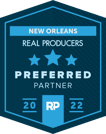 When purchasing a home, one of the most important factors to consider is the home loan limit. This determines the maximum amount of money that you can borrow to finance your mortgage. Loan limits vary depending on several factors, including your location, the type of loan, and current market conditions.
When purchasing a home, one of the most important factors to consider is the home loan limit. This determines the maximum amount of money that you can borrow to finance your mortgage. Loan limits vary depending on several factors, including your location, the type of loan, and current market conditions.
Beginning on January 1, 2025, conforming loan limits will increase to $806,500 in the 48 contiguous states. Any loan above this amount is considered a jumbo loan or a non-conforming mortgage.

What are Home Loan Limits?
Government-sponsored entities like Fannie Mae and Freddie Mac establish loan limits. These limits are designed to mitigate risk and promote stability in the housing market. They can influence the types of homes you can afford and the mortgage programs that are available to you.
What Factors Affect Mortgage Loan Limits?
Several factors influence home loan limits, including regional housing costs, property type, and loan program requirements. In high-cost areas, loan limits are generally higher to reflect elevated property values, while more affordable regions may have lower limits. Loan type also plays a role, as government-backed programs like FHA loans, VA mortgages, and USDA loans each set distinct limits to meet their specific goals. Additionally, broader economic factors, like inflation or policy changes, can adjust these limits annually, affecting how much borrowers can finance for their homes.
What Type of Mortgage Are You Applying For?
Depending on the type of mortgage you choose, lending limits can vary greatly. Conventional loans sponsored by Freddie Mac or Fannie Mae, for instance, usually have a fixed lending ceiling that changes annually depending on the state of the market. Local cost-of-living variables determine FHA loan limits, which are frequently lower than those of conventional loans. VA loans, which are accessible to eligible veterans, may have restrictions on zero-down payment choices but often have no loan limits for qualifying borrowers. Conversely, jumbo loans are intended for prices over traditional limitations and, because of their more considerable home loan value, may have more stringent qualifying requirements. These differing restrictions are shaped by the structure and intended usage of each loan type, providing more flexibility in accommodating a range of borrower needs.
How Do Market Conditions Affect Mortgage Shopping?
A number of market factors, such as inflation, economic stability, and property values, affect mortgage lending limitations. Higher loan limits may be implemented to cover rising expenses when property values rise, enabling purchasers to finance homes in accordance with the market. Another factor is inflation, which generally impacts loan thresholds and purchasing power. In order to maintain home accessibility for purchasers, lending institutions also consider economic factors, such as changes in mortgage interest rates and employment rates, while determining these restrictions.
Why Do Home Loan Limits Matter?
Mortgage loan limits are necessary because they determine the maximum amount a lender can offer for a specific loan type and property location. These limits affect the kind of loan available to borrowers, whether a conventional, FHA, or VA loan and can influence interest rates and qualification requirements. Knowing the limits helps borrowers set realistic expectations, avoid unexpected costs, and select the most affordable financing option for their home purchase, supporting a smoother and more cost-effective buying process.
How Do Loan Limits Affect Mortgage Affordability?
Loan limits can directly impact your purchasing power. If you're looking to buy a home that exceeds the loan limit, consider alternative financing options or a larger down payment for your home.
- Mortgage Program Eligibility: Different loan programs have specific loan limit requirements. Exceeding these limits may disqualify you from particular programs.
- Closing Costs: Loan limits can influence the amount of closing costs you'll need to pay. Higher loan amounts often result in higher closing costs.
How Do You Find Your Local Home Loan Limits?
To determine the specific loan limits in your area, you can:
- Consult with a Mortgage Lender: A mortgage lender can provide you with accurate and up-to-date information on loan limits in your specific location.
- Check with Fannie Mae and Freddie Mac: These government-sponsored entities publish loan limits annually.
- Use Online Tools: Several online tools and calculators can help you estimate loan limits.
By understanding loan limits and consulting with a qualified mortgage professional, you can make informed decisions about your home purchase.
The experts at Standard Mortgage are here to help you with your home buying and mortgage refinancing needs. For nearly 100 years, our team of loan officers has been making homeownership possible. Contact Standard Mortgage today to get started.





